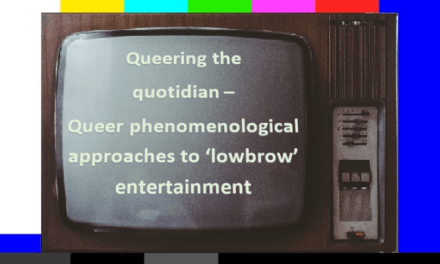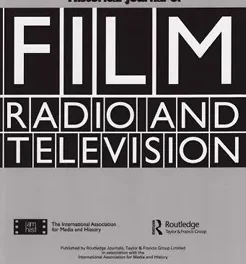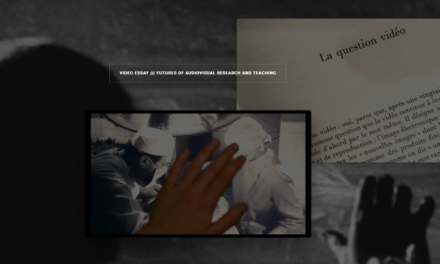‘Television! Teacher, mother, secret lover.’ — Homer Simpson
The ubiquity of television has been written about extensively in both scholarship and popular writing; ever since the first commercial sets began replacing the hearth as the centrepiece of any American living area, television has dominated how we write and think about the United States. In 2020, a time unlike any other in recent memory, more people than ever stayed indoors with the television on, streaming platforms open, and consumed entertainment insatiably. Was it comfort and nostalgia for a pre-pandemic time that saw record viewing figures? A distraction from the uncertainty of the present? Or, simply, that more entertainment is being produced than ever and to stay afloat and abreast of popular culture one has to consume quicker than ever before?
This special series invites all responses to the loose prompts of nostalgia, memory, and identity as seen through the lens (or rather, screen) of American television. From the digital water-cooler chat prompted by Netflix’s Tiger King; the apparent rise in ‘ambient TV’ with Emily in Paris; to rewatching classic sitcoms that have aged, for better and worse, alongside us, 2020 in particular has seen a particular resurgence in critical writing on contemporary television and the genres that comprise it. Television is a broad church, much like USSO, and we’re keen to hear a diverse range of responses to these ideas and prompts from an equally diverse range of scholars. Here is a list of further prompts and suggestions that your proposal might entail, though it is of course not exhaustive:
- Representations of childhood in American television (bildungsroman; coming-of-age narratives, etc.)
- Narratology and storytelling via visual media
- Adaptation and remake culture
- Independent productions versus flagship studio releases
- Spatiality and / or evocation of place and period in television
- Soundtracks, theme songs, and musical guests: the use of music in television
- Depictions of television in other media (and vice-versa)
- Representations of American politics, social issues, and historical moments in television
Abstracts should be around 250 words. Final articles, if accepted, should be 1000-1500 words and use Chicago Endnote style referencing.
Please send all abstracts addresses to Mairi Power and Will Carroll at usso@baas.ac.uk by Friday 2nd April and include ‘Television Special Series’ at the beginning of the subject line.
Journal website: https://usso.uk/




